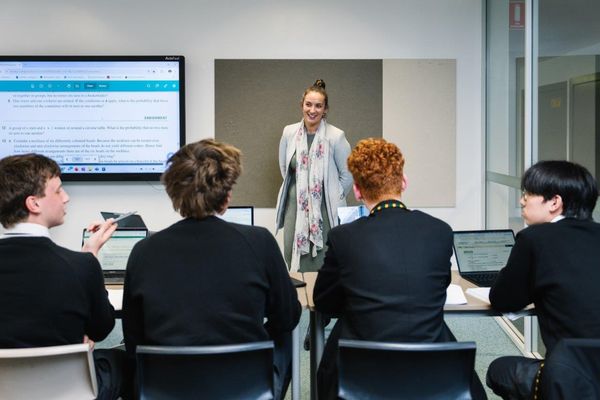Benchmarking and Global Metrics: A Perspective for Our Community
At St Augustine’s College, we are committed to providing an education that not only meets but exceeds national and global standards. To achieve this, we regularly assess our students' performance using benchmarking and global metrics. These tools help us gauge how well our students are progressing compared to their peers both in Australia and around the world.
Understanding Benchmarking and Global Metrics
Benchmarking is the process of comparing our educational practices and student performance against the best in the field. This allows us to identify areas where we excel, and areas where we can improve. Global metrics, on the other hand, are indicators that measure the quality and effectiveness of education systems across different countries. These metrics provide a broader perspective on how well students are being prepared for the challenges of the modern world.
One of the most recognised global metrics is the Program for International Student Assessment (PISA). PISA evaluates the ability of 15 year olds to apply their knowledge in reading, mathematics, and science to real-world challenges. The 2022 PISA assessment included students from St Augustine’s College, alongside students from 81 other countries. The results, which include insights into financial literacy, creative thinking, and readiness for lifelong learning, will be fully released in 2024.
PISA data suggests that Australian students, including those from our College, are performing well compared to their international peers. However, it’s also essential to consider how our students compare within the Australian context. This is where NAPLAN plays a crucial role.

NAPLAN: Measuring Our Students' Progress
NAPLAN (National Assessment Program – Literacy and Numeracy) provides detailed insights into the abilities of Australian students in key areas such as reading, writing, conventions of language, and numeracy. This data helps us understand where our students stand on a national scale and identify specific areas of strength and opportunities for growth.
We are proud to report that the 2024 NAPLAN results show some of the best outcomes we’ve ever seen at St Augustine’s College. Our students have excelled in all tested areas, with significant improvements in reading and writing. These results reflect the hard work of our students and the success of our targeted literacy interventions.
A key factor in these achievements has been our dedicated Literacy Program, which was piloted this year and has laid a strong foundation for further development in 2025. The program focuses on explicit teaching strategies for vocabulary, helping students engage with a wide range of expressive language. These strategies include direct instruction, the use of Freyer Charts, word walls, and AI analysis, all aimed at deepening students' understanding and use of language.
Our "Word of the Week" initiative has also played a crucial role in enhancing vocabulary skills, with new words being prominently displayed in classrooms and integrated into Tutor Group challenges. This approach has not only improved students' language abilities but also boosted their confidence in communication.

Looking Ahead
As we look forward to 2025, we remain committed to fostering excellence in education. The strong results from our Year 7 students, many of whom come from diverse primary school backgrounds, demonstrate the effectiveness of our teaching strategies. We are confident that our continued focus on literacy and numeracy will prepare our students for the challenges ahead, including future NAPLAN assessments and global benchmarks like PISA.
At St Augustine’s College, our goal is to help every student reach their full potential. By continually benchmarking our performance and measuring it against global metrics, we ensure that we are providing an education that meets the highest standards and prepares our students for success in an ever-changing world.


